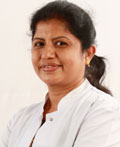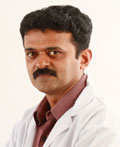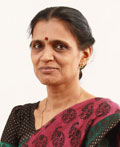Taking cancer control programmes to the door step of rural Kerala
A closer look at the cancer scenario in Kerala points to the fact that nearly two thirds of the cancer cases could be averted by taking formidable steps to prevent or modify risk factors and facilitating early detection. The Thiruvananthapuram Population based Cancer Registry report reveals that oral and lung cancer are the leading cancers among males, while among females, breast, thyroid and cervical cancers tops the list. The overall objective of Community Oncology Division is to impart knowledge regarding the risk factors of cancer and thereby create awareness in the community regarding the benefits of early detection of common cancers.
The Division of Community Oncology has started functioning in the Centre since 1985. Over a span of two decades, the Division has taken up innovative initiatives for cancer prevention and control in the State. The programmes are being conducted with the support of Governmental and Non-Governmental Organisations, and also through service-minded volunteers. The Division is located on the ground floor of the main block on the way to the payward (Level 2, Block A).
Implement and support cancer prevention and control activities to reduce cancer incidence and mortality in the state.
Outpatient clinics
The Community Oncology Division conducts weekly outpatient clinics on Tuesdays and Thursdays for detection of oral, breast and uterine cervical cancers. Remaining working days are devoted to community based health education and cancer detection activities. No referral letter is required for examination in this clinic. Detected cancer cases are referred to the respective clinics of the Centre for management. Patients with pre-cancer (stage before the occurrence of cancer) will be followed up in the Division according to the clinical severity of the disease and also based on the findings of the investigations.
a. Oral Cancer Detection Clinic
Tobacco and alcohol habitués and those who complaints of soreness, difficulty in tolerating spicy food, ulcers, growth, white/red patches in the oral cavity can undergo oral examination in this clinic. If necessary, further investigations like biopsy procedures will be undertaken.
b. Breast Cancer Detection Clinic
Patients to this clinic are referred from hospitals, cancer detection camps or individuals can come directly for clinical examination.. In this clinic, apart from physical examination by a doctor, patients are also educated to conduct regular breast self-examination. Regular follow up of high risk individuals is being done here and those who require further investigations will be referred as and when required.
c. Cervical Cancer Detection Clinic
Married women above the age of 30 years can attend this clinic for examination of uterine cervix. Routine tests done in this clinic include low cost procedures like VIA (Visual Inspection using Acetic acid), VILI (Visual Inspection using Lugol's Iodine) along with Pap smear, colposcopy and biopsy.
d. Tobacco Cessation Clinic (TCC)
Subjects who are addicted to tobacco can utilise the facilities of this clinic where guidance, counseling and Nicotine Replacement Therapy facilities are available to help tobacco users quit their habit.TCC also conducts Quit Tobacco Educator Programmes for volunteers interested in conducting tobacco cessation activities. For enquiries on tobacco cessation activities contact
tcctvm@gmail.com
Who should attend the out-patient clinic?
- Subjects who are using tobacco in any form viz: smoking, tobacco chewing, pan masala and also alcohol users.
- Those having burning sensation in the mouth
- Subjects with red or white patches, non–healing ulcers or those with abnormal swelling or growth in the mouth
- Routine oral examination without any signs or symptoms
- Women presenting with lump in the breast/axilla, nipple discharge, pain in the breast
- Married women above 30 years of age for uterine cervical examination
- General examination for persons with lump/swelling in the body, change in the size of the wart/mole
|
One of the objectives of the Division is to enhance capacity building of health professionals, paramedicals and grass root level health workers in cancer prevention and control.
Various levels of training programmes are envisaged for various groups. For details, please contact academic@rcctvm.gov.in
Outreach Programs
- Community empowerment for prevention, early detection and warning signals of cancer through awareness programmes
- Target oriented programmes viz. school based health promotion campaigns and campaigns in the remote areas for vulnerable groups like coastal and tribal community
- Mass media and exhibition campaigns for cancer prevention
- Professional training programmes
- Trainer-tranee programmes for paramedicals and health workers
- Tobacco Cessation Counselling
- Early cancer detection programmes
- Scientific research
Significance of cancer awareness programmes and early cancer detection
Educating the public on cancer prevention and control contributes to better awareness which enables them for lifestyle modulation. Awareness programmes makes them understand the signs and symptoms of common cancers thereby leading to early detection of cancers and appropriate management.
Through trainer-trainee programmes, a large number of trainers can be empowered, who in turn can train dedicated volunteers in cancer prevention and control. It is generally observed that in places where there are regular intensive campaign against habits like tobacco smoking, chewing and alcohol, a substantial reduction in cancer incidence and mortality has been achieved. Empowering health professionals, nurses, and health workers helps in early detection and timely referral to cancer treatment centres at the earliest.
The common cancers occurring in the society are detectable in the early stage. They include oral, breast and uterine cervical cancers. The purpose of early cancer detection is to identify the presence of a specific cancer in an individual that does not demonstrate any symptom. Cancer detection camps will be useful for high risk groups (example: tobacco and alcohol habitue’s) and for those who have suspicious signs or symptoms diagnosed through preliminary screening by a medical professional in the respective localities.



